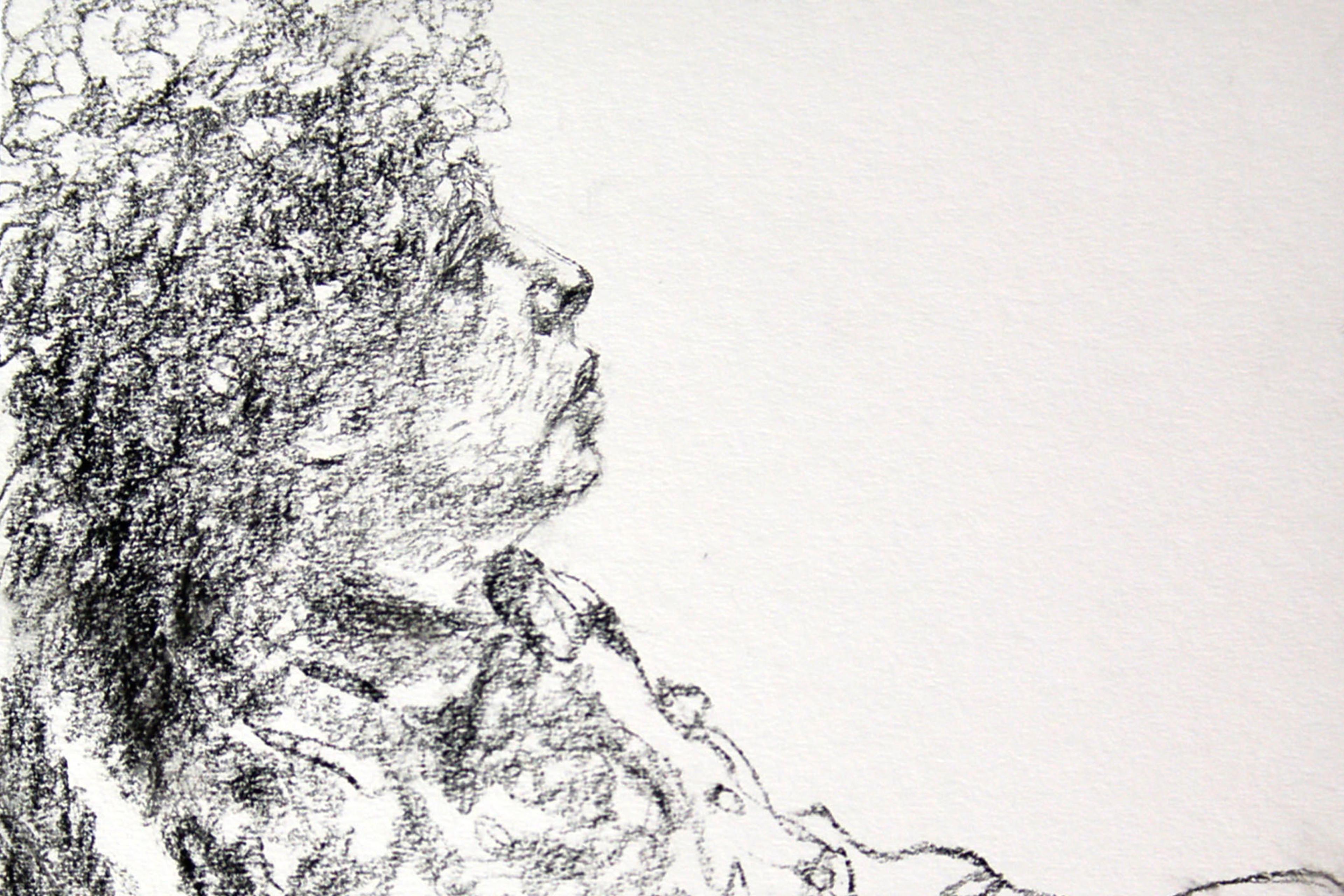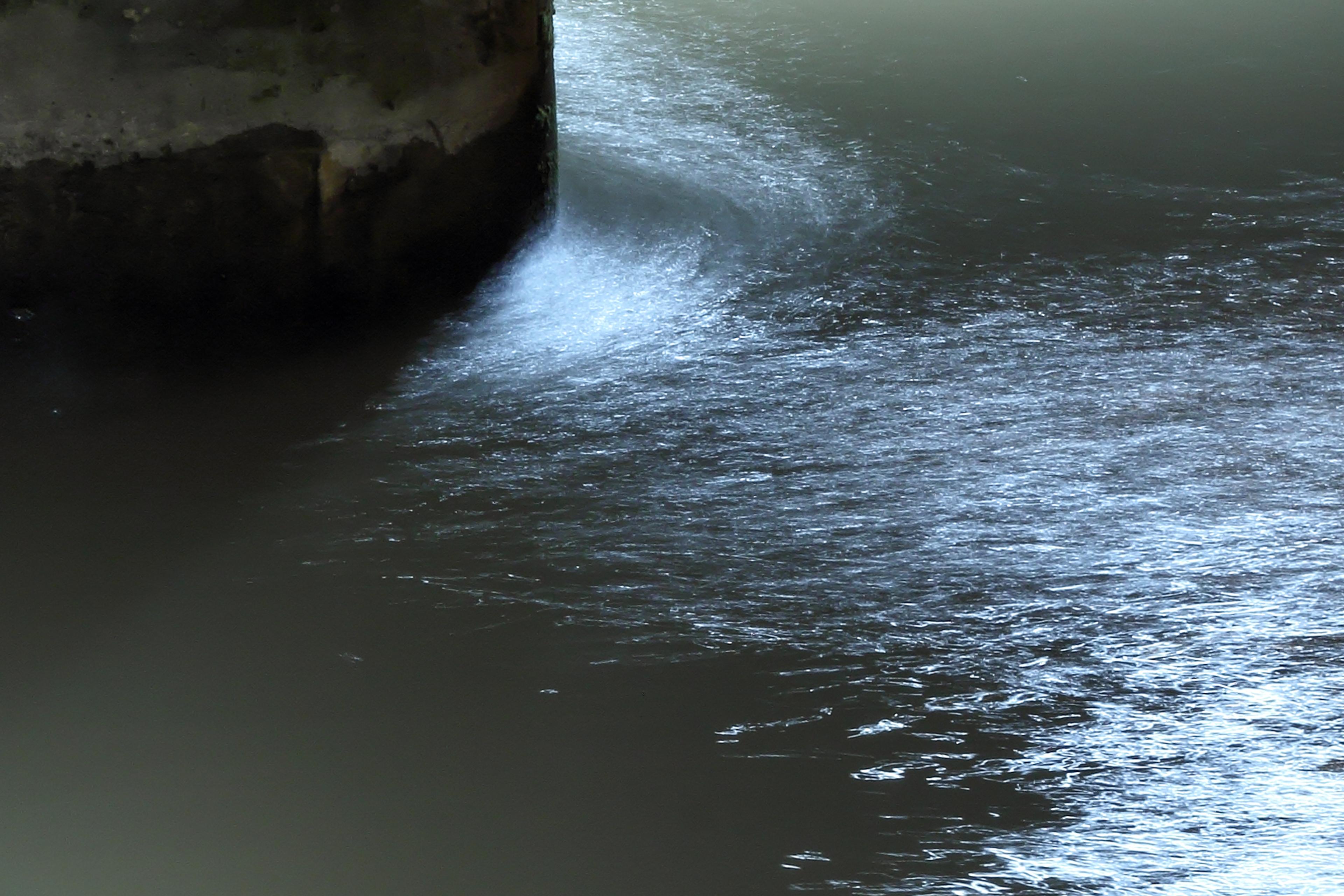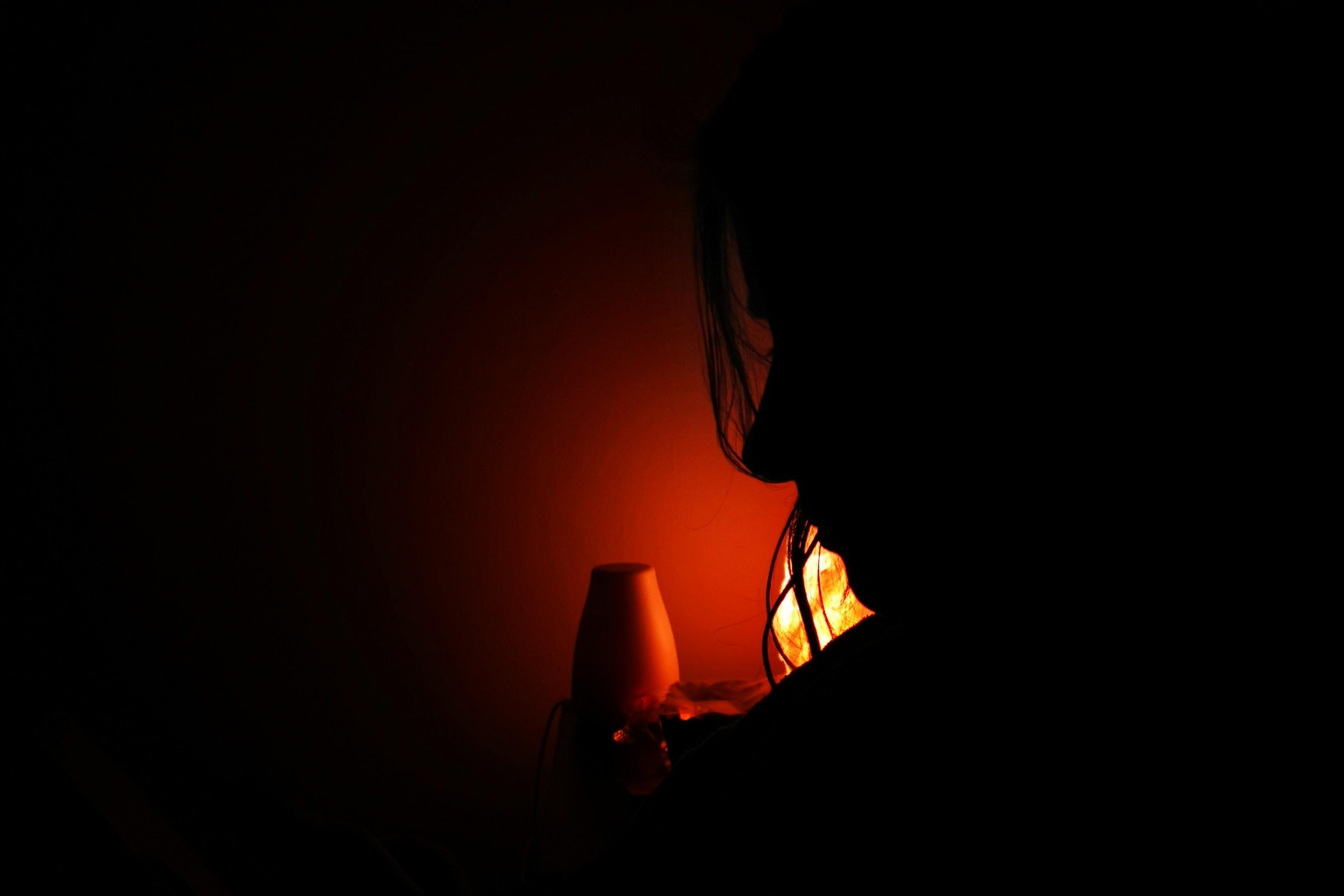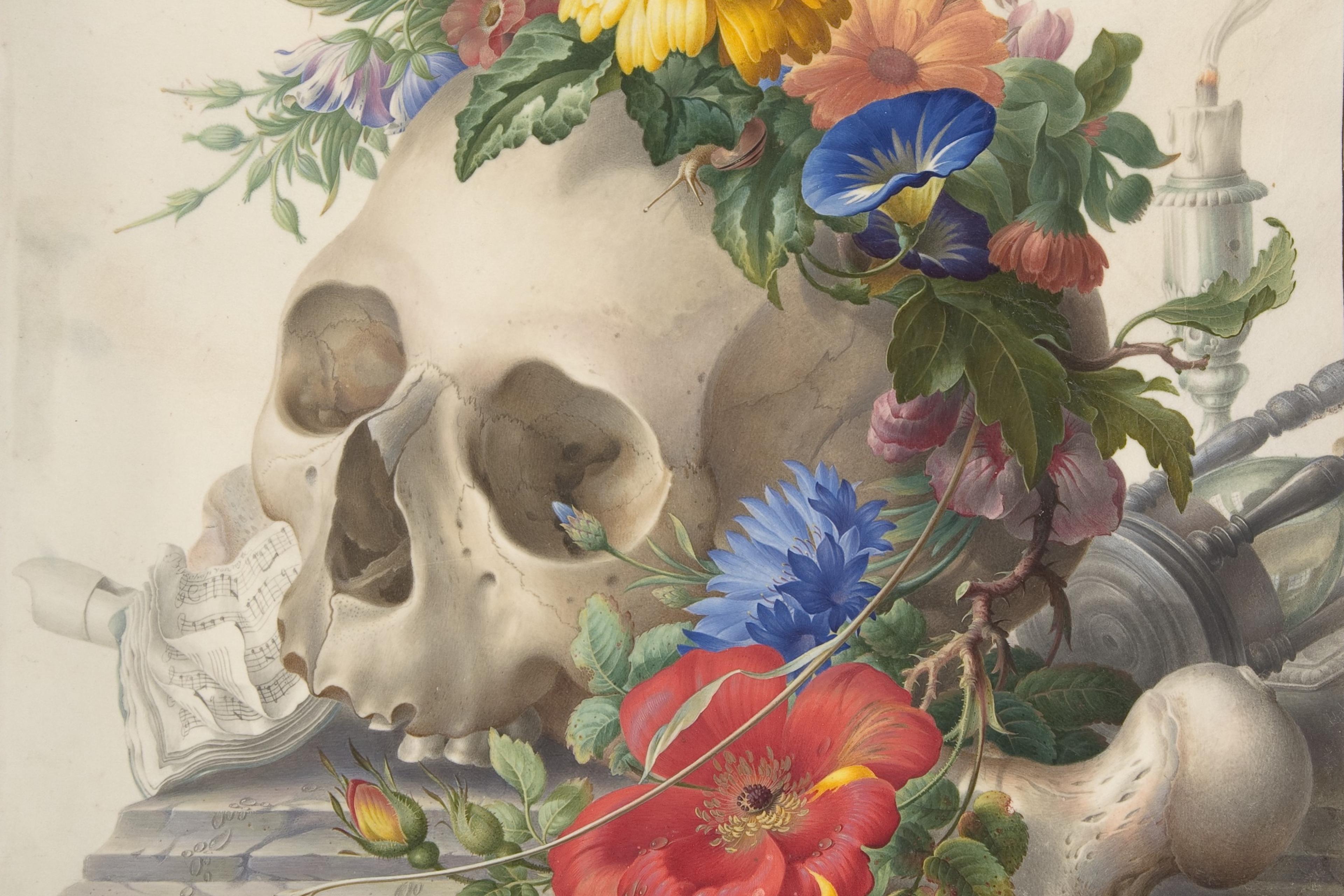Elee died on an overcast day in early August. I had spent the week leading up to her death in the hospice by her bed, holding her hand, waiting for the inevitable. We had been together for 13 years and, until a few months before, we had been planning for many years more. Then, late in January, Elee was diagnosed with Stage 4 cancer. The doctors gave her two or three years to live. But just over six months later, she was gone.
On the morning Elee died, I left the hospice and went for breakfast with one of her oldest friends. The morning was still chilly. The sun tried its best to come out, and we sat outside eating eggs Benedict. It was good to have the company, to share stories and silence and breakfast with somebody who knew Elee well. After breakfast, I said goodbye to Elee’s friend, and I went home to let myself into an empty house.
The cat came to greet me. He had been sorely neglected for the past week. I put some food in his bowl and made myself a cup of tea. As I drank the tea, I wondered what to do with myself. I was confused, disorientated, the compass points of my life in disarray. It wasn’t just the loss of Elee, it was the loss of a sense of what life was, what it could be.
In grief, the poet Naja Marie Aidt writes: ‘We have no hope for the future, we can neither imagine nor sense the future anymore. We can’t see an hour, a quarter of an hour, a minute ahead. We cannot make plans. We find ourselves in a futureless time.’
Grief tears a hole in the world. It exposes us, leaves open a rent, a gap. It makes the future impossible, because it refers only to the past.
A couple of days after Elee died, my bike was stolen. I had left the bike outside the station to go on a few melancholy errands: closing down Elee’s bank accounts, visiting the register office to sort out death certificates. By the time I got back to the station, somebody had come and cut the lock and taken the bike.
The timing was upsetting (‘To the thief who stole my bike,’ I later posted on Facebook, ‘you could have chosen a better time. You could have chosen a better bike.’) But there was nothing to be done. I went back into town to get a coffee to calm myself down.
It was then, in the middle of the high street, that the stranger approached. She was a charity fundraiser in her 20s with an open, optimistic face. ‘Hi,’ she said. ‘You look like a friendly person. Can you spare a minute?’
I glanced at the logo on her tabard. Almost immediately, I recognised the precise shade of pink: breast cancer research. I was momentarily paralysed. There was a constriction in my throat, something close to horror. This was the last thing I needed.
‘Do you know much about breast cancer?’ she asked.
I couldn’t deal with this. Not now. For a moment I was about to lie, to brush her off and make my excuses. But then I thought I might as well tell the truth. ‘Yes,’ I said. I hesitated. ‘My partner died in the hospice, earlier this week.’
The stranger paused to take this in. ‘What was her name?’ she asked.
The question surprised me. It was the simplest of questions, and it seemed like a gift. ‘Elee,’ I replied.
She smiled and reached out to touch my arm. ‘You need a hug,’ she said.
Then she put her arms round me and squeezed me hard, her plastic tabard crackling. It was a hug of solidarity; a shared acknowledgement of the difficulty of living.
‘Thank you,’ I said, crying into her shoulder, utterly overwhelmed. ‘Thank you so much.’
In the years since, I have often thought about that stranger, the way she reached out and hugged me, and about the way that, when the world is broken, the touch of a stranger can be a bridge to something new. Because in grief, when the future seems impossible, this might be when we need strangers the most.
The 20th-century philosopher Emmanuel Levinas spent most of his life preoccupied by the idea of what it means to encounter strangers, or to encounter the strangeness in others. Levinas’s difficult, complex philosophy draws deeply on the work of his teacher Edmund Husserl, the founder of phenomenology, a philosophical method that aimed to systematically map out the structures of human experience. Husserl saw phenomenology as a means to putting human knowledge on a firm footing. It didn’t turn out that way: both phenomena and phenomenologists were too slippery to be so easily pinned down. Nevertheless, phenomenology came to be one of the most richly productive philosophical movements of the 20th century and beyond.
The starting point for Levinas’s meditations on strangers came from Husserl’s Cartesian Meditations (1931), a book that Levinas himself translated into French together with Gabrielle Peiffer. In the fifth chapter of Cartesian Meditations, Husserl reflects on the strangeness of our experience of other people. For Husserl, there is something singularly odd about how we experience others. We experience other people not only as objects in the world, but as subjects for the world. We experience them as beings who are going round experiencing the world, just as we are. But the experiences that they are having remain out of our reach. This is why Husserl writes that the other person ‘is a “mirroring” of my own self and yet not a mirroring proper, an analogue of my own self and yet again not an analogue in the usual sense’. We encounter others as subjects; and, to this extent, we experience them as being analogues of ourselves. But we have no access to this subjectivity; and, to this extent, we experience them as radically other.
For Levinas, this is the starting point for a long series of complex meditations on the strangeness and unknowability of other people. Levinas takes Husserl’s argument about this cocktail of closeness and otherness in our experience of other people, and he develops it into an idea of the radical freedom of the other person, their essential strangeness. Even if I have someone else at my disposal, Levinas argues, they are never within my power. Something essential about them, their inwardness, eludes me. The stranger is forever beyond our grasp.
At this point, Levinas makes an interesting turn. This relationship with the stranger, he writes, is a relationship with the future. The stranger ‘disturbs the being at home with oneself’. In doing so, they shake us from the world of our own concerns, and they open us up to possibilities, ideas, thoughts, trajectories, responsibilities and futures that we could not have conjured by our power alone. ‘The other [or the stranger] is the future,’ Levinas writes in his essay Time and the Other (1947). ‘The very relationship with the other is the relationship with the future.’
And, for Levinas, there is nothing more unsettling – or more liberating – than this.
It is not necessary to fully sign up to Levinas’s philosophy to recognise that he has got hold of something both ordinary and mysterious: the unsettling experience of bumping into a stranger, and knowing that their projects and goals, their aims and dreams and thoughts and purposes, are somehow beyond our grasp.
In these encounters, it is no surprise that we often equivocate between fear and fascination. The fear of strangers – xenophobia – runs deep in us. We don’t know what strangers are up to, or what they are capable of, and this unknowability makes them a potential threat. It comes as no surprise that the fear of strangers is found in humans from infancy, and that it is also found elsewhere in the animal world. Cats, for example, often hide when unfamiliar people come stomping into their territory.
But those who want to argue that xenophobia is deep-rooted and ineradicable often miss something else: fear is only part of the story. Although we might shrink back from strangers, we also desire to reach out, to connect, or to respond when another reaches out to us.
The ancient Greeks called this desire philoxenia, or friendship with the strange. Philoxenia is as much a part of us as its counterpart, xenophobia. As much as we are afraid of strangers, we are also fascinated. And this fascination makes sense: recent research shows that, for all our fears, most encounters with strangers are broadly positive. Encountering strangers is never without risks. But, if we take the chance, the rewards can be great.
My encounter with the charity fundraiser involved both of these: xenophobia, or the defensive urge to resist that friendly ‘hello’; and philoxenia, or the hunger for connection. And behind these conflicting forces were two very different questions. The question xenophobia asks is: ‘What will become of me?’ But philoxenia asks a different question. It asks: ‘What will I become?’ And this question shimmers with a kind of hope: the hope that we might be changed and transformed. The hope that we might – one day soon, tomorrow, today, even now – find ourselves different from how we now are, that we might be liberated from the concerns that press upon us.
And this is perhaps why, on that afternoon so soon after Elee’s death, a simple hug from a stranger made such a world of difference, why it lingers in my mind. Because, in this encounter with someone wholly beyond the world of my grief and my loss – when I allowed philoxenia to win out over xenophobia – I had an inkling of the possibility of something new. And on that afternoon, when everything was stopped-up by grief, this brief embrace gave me an intimation that the future – the unthinkable future that I had thought lost – was possible after all.








